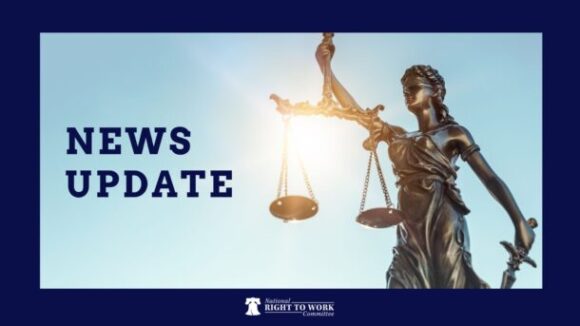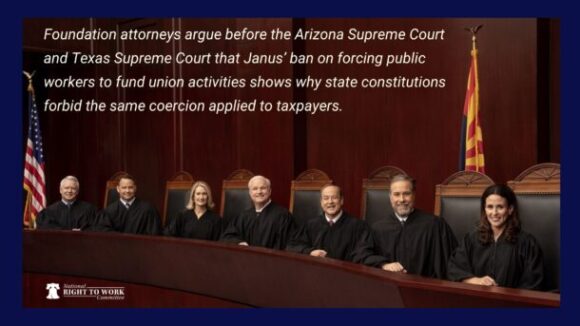DC-Area Transdev Driver Takes Case Regarding Union-Instigated Assault to Federal Appeals Court
Biden Labor Board claims ATU union did not violate law even after Transdev worker experienced slap and termination attempt from union officials
About two years ago, we wrote about Elizabeth “Penny” Pinchler, a union worker whose privacy rights were violated by UNITE union activists. She filed a suit in federal court and the “. . . union may be held liable for punitive damages due to privacy violations under the Driver’s Privacy Protection Act – and U.S. District Courts have discretion to award additional damages where a defendant repeatedly discloses the personal information it improperly obtained, the 3rd Circuit has ruled.”
As reported by the Lawyers Weekly USA Staff:
A group of plaintiffs filed suit against the union, alleging violations of the Act.
The union had launched an organizing campaign targeting an industrial laundry company, and noted the license plates of employees’ cars entering and leaving company parking lots. The union then accessed motor vehicle records based on the license plates and made house calls, seeking to get the laundry company’s employees to join the union’s campaign.
A U.S. District Court awarded the plaintiffs $2,500 each and enjoined the union from further use of their personal information.
The plaintiffs appealed, arguing they should have been awarded punitive damages as well as $5,000 each – $2,500 for the unauthorized access and as well as $2,500 for the subsequent use of their personal information.
The court agreed that even though the Act makes no mention of a right to a jury trial, the plaintiffs were eligible for a trial on the issue of punitive damages based on their Seventh Amendment rights.
“The [Act] provides redress for violation of a person’s protected interest in the privacy of his or her motor vehicle records and the identifying information therein. . . . [W]e hold that the issue of punitive damages in cases sounding in tort (such as [cases under the Act]) ‘were decided by [a] jury in suits at common law at the time the Seventh Amendment was adopted.’ . . . Trial issues of willfulness and recklessness are common factual issues for juries to determine,” the court said.
Next, the court determined that although “both obtaining and using motor vehicle information for an impermissible purpose violate the [Act] . . . it does not follow that each independent violation entitles plaintiffs to a separate liquidated damages award. . . . Congress clearly contemplated that in most cases, a defendant who obtained motor vehicle information would put it to some use. Therefore, given Congress’s use of the term ‘liquidated damages’ and the $2,500 amount provided, we conclude that this amount encompasses both aspects of a defendant’s ‘breach’ of the [Act] – one instance of obtaining and one of use – and that the defendant is limited to one liquidated damage award in this situation. A contrary holding would effectively result in a minimum award of $5,000 for every violation of the [Act] – a result we do not believe Congress intended.”
However, the court said that U.S. District Courts have discretion to grant plaintiffs additional damages “if, after obtaining a plaintiff’s personal information in violation of the [Act], [defendants] repeatedly use or disclose that personal information.”The court also said that such liquidated damages were appropriate even where plaintiffs did not have any actual damages.

Biden Labor Board claims ATU union did not violate law even after Transdev worker experienced slap and termination attempt from union officials
NY Starbucks workers are challenging NLRB that refuses to let them hold decertification votes to remove unwanted SBWU union

Foundation attorneys argue before the Arizona Supreme Court and Texas Supreme Court that Janus’ ban on forcing public workers to fund union activities shows why state constitutions forbid the same coercion applied to taxpayers.